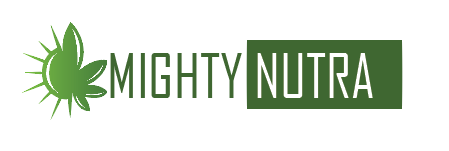
What is Potassium?
Potassium is a mineral that your body needs to work properly. It is a type of electrolyte. It helps your nerves to function and muscles to contract. It helps your heartbeat stay regular. It also helps move nutrients into cells and waste products out of cells. A diet rich in potassium helps to offset some of sodium's harmful effects on blood pressure.
Your body doesn’t produce potassium naturally. So, it’s important to consume the right balance of potassium-rich foods and beverages.
Be wary, though, consuming too little potassium can lead to serious health issues, and consuming too much is harmful as well. a balance is most important in pausing pain with potassium.
Pain and Potassium
Patients seek relief mostly with analgesics and anti-inflammatory drugs which are rife with life-threatening side effects. Alterations in the body’s potassium status may be one such factor of a higher sensitivity to pain caused by autoimmune disease.
Potassium along with sodium is critical to cellular homeostasis and the electrophysiology of nerve impulses. This review is based on the premise that potassium can be used therapeutically to reduce pain and inflammation in patients with autoimmunity and their co-morbidities.
Basically, potassium slows down the signal between your pain receptors and your brain so your sensitivity to pain is much reduced. In multiple researches, many autoimmune patients report both a lower amount and less frequent pain that’s related to their disorder. These patients often report reduced symptoms and longer intervals between flare ups.
Those with autoimmune diseases also generally have lower levels of cortisol, a natural steroid that fights inflammation, which is the major cause of pain. Cortisol helps our kidneys excrete potassium. This is because when potassium is flushed out of the body, cortisol works to conserve potassium, and so cortisol levels then also drop.
Other Surprising Benefits of Potassium
Maintaining good fluid balance is important for optimal health. Poor fluid balance can lead to dehydration, which in turn affects the heart and kidneys.
The body is made of approximately 60% water. Potassium is the main electrolyte in the ICF, and it determines the amount of water inside the cells. This essential nutrient creates an equal balance of electrolytes outside and inside your cells.
This mineral plays an essential role in activating nerve impulses throughout your nervous system. Nerve impulses help regulate muscle contractions, the heartbeat, reflexes and many other processes.
A potassium-rich diet may reduce blood pressure and water retention, protect against strokes and help prevent osteoporosis and kidney stones.

Where can Potassium be Found?
Potassium is abundant in many whole foods, especially fruits, vegetables, and superfoods like turmeric and moringa. Most health authorities agree that getting 3,500–4,700 mg of potassium daily appears to be the optimal amount.
Turmeric is an amazing source of potassium at the perfect level. Curcumin is the main active ingredient in turmeric. It has been discovered that it has potent anti-inflammatory properties and is a powerful antioxidant. It has similar efficacy to other anti-inflammatory medications, but without the negative side effects. It does so by inhibiting a substance that travels to the nucleus of cells and activates inflammation-related genes.
Moringa contains proteins, vitamins, and minerals. As an antioxidant, it seems to help protect cells from damage. Moringa’s levels of potassium may also help decrease inflammation and reduce pain. Because of its therapeutic qualities and health advantages, moringa has been utilized for millennia. Apart from anti-inflammatory effects, it also possesses antifungal, antiviral, and antidepressant characteristics.
If you have trouble adding fresh produce to your diet due to the cost of spoilage, consider adding supplements to your diet. Whole food supplements are organic and nutrient-dense, enhancing their nutrition profile by making vitamins and minerals more readily available.


